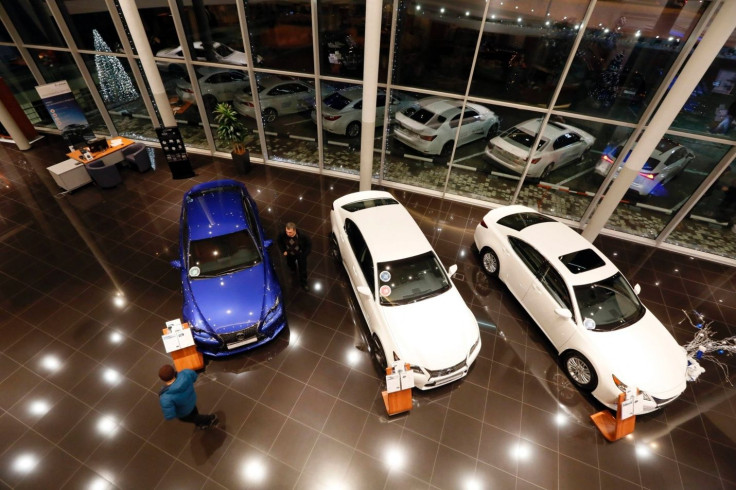Russian Ruble Crisis: What It Means For Apple, McDonald's, BMW And Other Multinational Corporations

Russia’s economic troubles might still seem like something only Russians need to worry about, but corporations worldwide are watching developments closely, underscoring how important the world’s sixth-largest economy is to them, their shareholders and employees.
With Russia’s ruble tanking, it’s lost 20 percent of its value against the dollar since Monday, prices are beginning to soar, forcing major adjustments in planning for companies with significant exposure to the Russian market.
Apple stopped selling its products online in Russia on Tuesday, McDonald’s raised prices earlier this month on menu items, and BMW is asking its Russian dealers to pay for the cars they’ve ordered within two days to avoid losing more profit on the ruble-to-euro currency exchange.
"Prices are likely to skyrocket within the next few days," a central Moscow luxury watch vendor told The Moscow Times on Wednesday.
Russia’s currency slide, helped by its dependence on petroleum exports which have seen prices fall over 40 percent this year, is slowing global performance and may affect the stock values of major corporations. Many foreign companies had been expecting the Russian troubles related to trade sanctions. In financial filings this year, well-known multinational companies such as Procter & Gamble, Unilever, PepsiCo. and Danone have either lowered their growth forecasts or blamed Russia for problems in their emerging market portfolios.
Companies with high exposure to Russia, like British oil giant BP and Danish brewer Carlsberg have seen their share prices plummet by double digits this year. The situation isn’t dire enough for major companies to pull out of Russia, but it has severely hobbled growth.
“Russia is too big a market to be ignored, but plans for increasing investment must surely be on hold,” Sarah Boumphrey, head of strategic, economic and consumer insight for research firm Euromonitor International in London, told Bloomberg News. Industrial conglomerate General Electric, for example, draws about a billion dollars in business from Russia, largely in the sale of its products to the petroleum industry, aerospace engines and power generation equipment.
“The outlook for Russia is challenging and fluid,” Ford Motor Co. said in its recent third quarter regulatory filing. General Motors recently wrote of $200 million for the cost of sales in Russia. Major Auto, one of Russia’s largest car dealership chains, told Russia’s Itar-Tass news service that it has temporarily stopped selling vehicles due to “the highly volatile ruble exchange rate.” Honda, Skoda and Nissan deliveries have also been interrupted, according to Russia’s daily newspaper Kommersant.
European companies have the most to lose because of their big presence in the Russian market. Carlsberg Group derived about 40 percent of earnings from Russian operations, according to Financial Times, and has lowered its profit forecast twice this year, pulling down its share price nearly 20 percent. Likewise, Coca Cola HBC, the beverage multinational’s Russian bottler and distributor has seen its share price plummet by nearly 30 percent this year.
“[Russian] disposable income has been further impacted by the currency and inflation in the food and beverage categories,” Dimitris Lois, Coca Cola HBC CEO, said in a conference call last month explaining a 9 percent sales decline for the first nine months of the year.
“We will continue to monitor the economic, operating and political environment in Russia closely,” said PepsiCo in its third quarter earnings report. The U.S. beverage and snack giant’s largest foreign market is Russia, an analysts expect the company’s fourth quarter earnings to be impacted by the more recent decline in the ruble’s value.
“It could cause some estimates to come down," Lori Hudson, portfolio manager at Bahl & Gaynor Investment Counsel Inc in Cincinnati, told Reuters. Britain’s Imperial Tobacco Group, owner of Gauloises cigarette and Drum tobacco, said sales volume was falling in Russia because “difficult trading conditions” were undermining performance in the world’s fourth biggest market for tobacco products.
© Copyright IBTimes 2024. All rights reserved.












